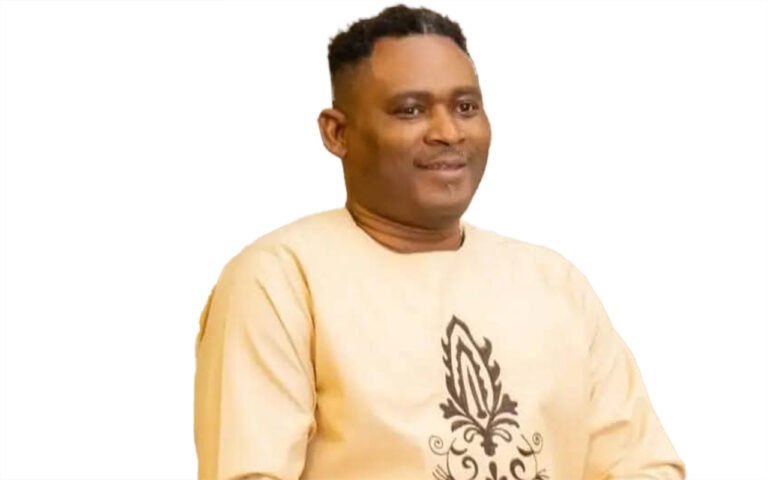Cincy Serve – Cincinnati Open Tournament Awardee, Baba Adebola T. Olowe, Sr., Shares His Journey, Global Vision For African Arts
Nigerian-Born poet, playwright, and cultural ambassador, Baba Adebola T. Olowe, Sr., is the Founder and Artistic Director of Bi-Okoto Drum and Dance Theatre. Born into a family deeply rooted in the arts, he toured the United States in 1989 and 1990 with the OduChiAla Dance Troupe, founded by his late father, Adedapo M. Olowe.
Even during a career in software engineering, he traveled extensively teaching African drums, music, dance, food, languages, and storytelling. In 1994, he founded Bi-Okoto, which has since grown into an internationally respected cultural institute with a presence in Nigeria since 2014 and plans for satellite centres in Europe. Over the years, Baba Adebola has performed and taught across four continents, developed educational curricula for PBS’s Arts Toolkit – African Dance and Music, and led U.S. Department of Defence–sponsored cultural tours in Europe.
His mission is simple yet profound: to preserve, promote, and share the rich cultural heritage of Africa with the global community. In recognition of his decades-long dedication to preserving and sharing African cultural heritage, he was one of the 12 honourees at the Cincy Serve – Cincinnati Open Tournament. He takes us through his journey, Bi-Okoto’s impact, and his vision for building a global network of cultural exchange.
“I was born in Nigeria, surrounded by the rhythms, dances, and storytelling traditions of my Yoruba heritage. My father, the late Adedapo M. Olowe, founded the OduChiAla Dance Troupe, which toured United States of America in 1989 and 1990. Performing with the troupe deepened my passion for preserving African culture,” he says.
“Even during my years as a software engineer, I traveled extensively to teach African drums, dance, music, languages, and food traditions. Eventually, the call became too strong to ignore — and Bi-Okoto was born,” Olowe adds, as he speaks on his journey and what inspired his desire to pursue a career in traditional African arts, particularly dance and drumming.
On what motivated establishment of Bi-Okoto Dance Company and Cultural Institute, Olowe muses, “I wanted to create a space where African traditions could live and breathe year-round, beyond festivals and special occasions. Bi-Okoto began in 1994 as a professional African dance company in Cincinnati, and over the years, it has grown into an international cultural institute — with roots in Ohio, deep ties in Nigeria, and plans for expansion into Europe. Our mission is clear: to share Africa’s rich cultural heritage with the global community.”
He believes African arts contribute to cultural awareness and understanding in today’s global society. He says traditional African arts are a bridge between cultures. “They reveal the values, histories, and identities of Africa’s many peoples, while creating space for connection with other cultures. In today’s global society, they help dismantle stereotypes, encourage dialogue, and build respect across borders,” he confesses.
Sharing some of the most memorable moments and milestones in his career, Olowe reveals they include performing on U.S. Department of Defence–sponsored tours across Europe, contributing to PBS’s Arts Toolkit – African Dance and Music curriculum, and launching our Nigerian base in 2014.
“But the greatest milestones are the human ones — seeing a student’s confidence grow; or hearing from someone years later that Bi-Okoto changed how they see themselves and the world.”
He says this has reinforced his belief that cultural exchange must be two-way. “We bring African arts to communities, but we also listen, learn, and create together. That’s why our workshops and residencies are participatory — so, people can feel the culture in their own bodies and voices,” he sighs, adding: “The centre is also involved in helping the child to experience the vibrant rhythms, dynamic dances, and rich languages of Africa through Bi-Okoto’s interactive residency programmes.”
The programme is not only designed for schools and colleges, it brings cultural education to life, empowering students with hands-on experiences that inspire creativity, critical thinking, and global awareness.
Through this programme, children are taught how to master traditional rhythms and techniques on authentic African drums while exploring their cultural significance. They are also given basic education on African dance such that students are able to learn movements rooted in history, storytelling, and celebration from expert dancers.
With over 30 years experience in cultural education, Olowe confesses Bi-Okoto delivers programmes led by skilled artists deeply rooted in African traditions. “Our residencies promote understanding, respect, and appreciation for African heritage, fostering a globally-minded student body. All programmes align with educational standards, including Cincinnati Public Schools’ curricula, ensuring a seamless integration into your institution’s goals.”
Still on the programme, the artistic director says, “our hands-on approach introduces students to the diverse beauty of African cultures, enhancing their learning in music, dance, language, and social studies.”
He muses: “In a vibrant community blending Yoruba and American traditions, elders and parents take on the shared responsibility of guiding the next generation. Through ceremonies, storytelling, and shared wisdom, they help reconnect children to their heritage and values. When a defaced mural sparks a reckoning, the community must unite to heal and inspire the youth, culminating in a powerful showcase of cultural pride.”
On the significance of traditional arts, such as drumming and dance, in African culture, Olowe says drumming is the heartbeat of community life — marking ceremonies, transmitting messages, and calling people together. “Dance is our living archive, expressing joy, grief, unity, and resistance. Together, they are a powerful force for connection and identity.”
According to him, “we honour tradition by learning directly from culture bearers and preserving its original meaning. At the same time, we use modern staging, costuming, and collaborations to make the work speak to contemporary audiences without losing authenticity.”
He quips: “Culture is a bridge, not a barrier. Our differences are not divisions; they are opportunities to learn and celebrate. I want audiences to leave feeling uplifted, curious, and ready to engage with others in a deeper way.”
The drum expert says: “I want young people to know that culture is a living, breathing inheritance — something they can take pride in and share. By engaging them early, we prepare them not only to be artists but also cultural ambassadors who carry these traditions forward.”
On being named one of the final 12 honourees at the Cincy Serve – Cincinnati Open Tournament, he has this to say: “This honour affirms more than three decades of work in preserving and sharing African arts with audiences worldwide. It is also a recognition of the communities and artists who have joined Bi-Okoto’s journey — from our home base in Cincinnati to our presence in Nigeria since 2014, and now as we prepare satellite centres in Europe. It’s a moment to celebrate how far we’ve come and to invite others to walk with us into the future.”
Are there any upcoming projects or initiatives you are excited about?
“Yes!” he laughs out. “Alongside launching our Tolongo After School programme and expanding our school residencies across the U.S., we’re preparing to open satellite centres in Europe to strengthen our global network. This builds on our established presence in Nigeria since 2014 and our mission to make African heritage accessible worldwide. But these projects are not just ours — they are opportunities for collaboration. We invite artists, educators, funders, volunteers, and cultural partners from around the world to join us. Together, we can create spaces where African traditions are celebrated, shared, and passed on to future generations. Our work is proof that when cultures meet in mutual respect, they create something beautiful that belongs to all of us.”




